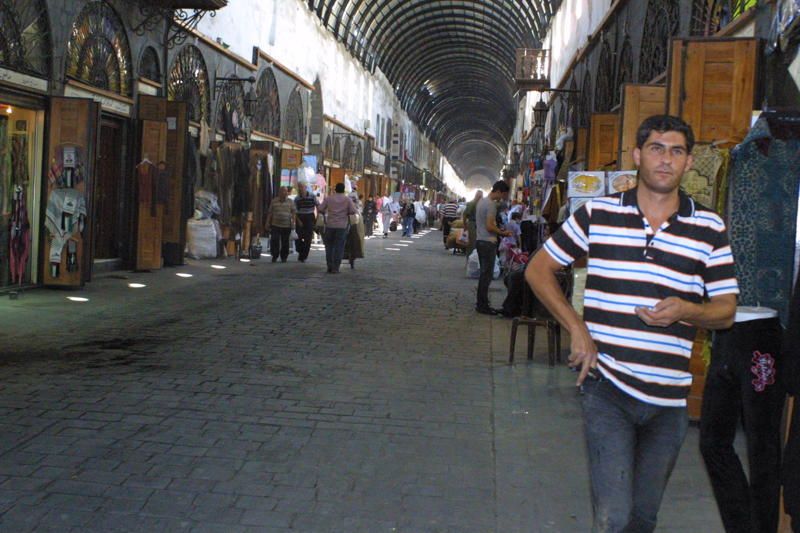As clashes continue between pro-democracy demonstrators and police loyal to President Bashar al-Assad, one of the issues protesters are angry about is the government's system of crony capitalism, where friends and relatives of the Syrian president benefit economically from those relationships.
Reese Erlich reports from Damascus.
Steve Chiotakis: Syrian activists today say violence in the city of Homs has killed nearly three dozen people. That's as clashes continue between pro-democracy demonstrators and police loyal to President Bashar al-Assad. One of the issues protesters are angry about is the government's system of crony capitalism, where friends and relatives of the Syrian president benefit economically from those relationships.
Reese Erlich reports from Damascus.
Reese Erlich: For some people in Syria, Rami Makhlouf, owner of the cell phone company Syriatel, is the very model of a successful entrepreneur. He made a small private company into a multi-billion-dollar cell phone powerhouse.
Here in a Damascus cell phone shop, this salesman considers Makhlouf a local hero.
Erlich: What is your opinion of him as a businessman?
Vendor: Very good person.
Several months ago, however, pro-democracy demonstrators expressed their anger at Makhlouf by burning Syriatel SIM cards. For them, Makhlouf became rich because he's the cousin of President Bashar al-Assad.
A group of pro-democracy activists drive to a clandestine location near the Old City of Damascus. An activist using the pseudonym Leen says under the guise of liberalizing the economy, the Syrian government enriched a loyal group of crony capitalists. Her voice has been distorted to protect her identity.
Leen: I think Rami Makhlouf is a symbol for corruption in Syria, but he's not the only man. Our government, they make the corruption deeper and deeper.
Erlich: He's a symbol, but he's not the only one.
Leen: Yeah.
But Leen and other activists no longer burn SIM cards. They discovered that if the government doesn't know who owns the SIM card, cell phones are ideal for clandestinely organizing demonstrations. Another activist named Ahmad says protesters now buy lots and lots of SIM cards.
Ahmad: It's not important to burn the SIM cards because we use them. We need to pay our bills to make the revolution.
In Damascus, I'm Reese Erlich for Marketplace.
Chiotakis: Reese Erlich received a grant from the Pulitzer Center on Crisis Reporting for his coverage of Syria.
